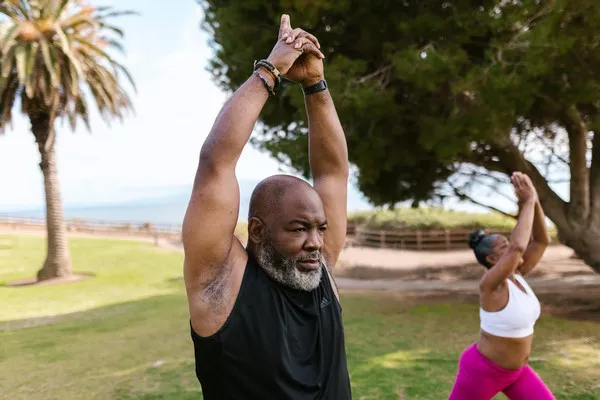When it comes to fitness, two major types of exercise often dominate the conversation: aerobic exercise and strength training. Both are important components of a well-rounded workout routine, and each offers unique benefits for the body. However, many people wonder which one is better for achieving overall fitness and health. Should you focus more on aerobic exercises like running, cycling, or swimming, or should you dedicate time to strength training with weights and resistance exercises?
This question doesn’t have a simple answer, as both aerobic exercise and strength training offer distinct advantages, and the best approach depends on individual goals and needs. In this article, we will explore the benefits of both aerobic exercise and strength training, comparing their impacts on cardiovascular health, muscle strength, endurance, weight management, and overall fitness. We will also provide guidance on how to combine these two types of exercise to create a balanced fitness routine that works for you.
What Is Aerobic Exercise?
Aerobic exercise, often referred to as cardio, involves activities that increase your heart rate and improve the efficiency of your cardiovascular system. Examples of aerobic exercises include running, swimming, cycling, walking, and dancing. The primary goal of aerobic exercise is to improve endurance by boosting oxygen consumption and enhancing blood flow throughout the body.
Aerobic exercises are typically moderate to vigorous in intensity and can be sustained over longer periods of time. They help to increase stamina, improve heart and lung health, and burn calories effectively. Additionally, aerobic exercise can reduce stress levels, improve mood, and promote better sleep.
Benefits of Aerobic Exercise
Improved Heart Health: Aerobic exercise strengthens the heart and lungs, enhancing their ability to pump oxygenated blood throughout the body. Over time, regular cardio workouts can help lower blood pressure, reduce the risk of heart disease, and improve overall cardiovascular health.
Calorie Burning and Weight Loss: Aerobic exercise is a highly effective way to burn calories and promote fat loss. The continuous movement involved in activities like running and cycling helps the body utilize energy from fat stores, leading to weight loss when combined with a balanced diet.
Increased Endurance: Aerobic exercise increases the body’s capacity to perform physical activity for longer periods of time. Regular aerobic training improves stamina, making daily tasks like climbing stairs or walking longer distances easier.
Improved Mental Health: Studies have shown that aerobic exercise can reduce anxiety, depression, and stress. The release of endorphins during cardio workouts promotes feelings of happiness and relaxation.
What Is Strength Training?
Strength training, also known as resistance training, involves exercises that focus on building muscle strength and mass by working against resistance. This resistance can come from free weights, machines, resistance bands, or even your body weight. Examples of strength training exercises include squats, deadlifts, push-ups, lunges, and bench presses. The primary goal of strength training is to increase muscle strength, size, and endurance.
Unlike aerobic exercise, strength training is typically done in shorter bursts of intense effort, followed by rest periods. Strength training can be done for the upper body, lower body, or full body, targeting specific muscle groups to enhance their power and functionality.
Benefits of Strength Training
Increased Muscle Mass: One of the most notable benefits of strength training is the increase in muscle mass. As muscles are stressed during exercise, they adapt by growing stronger and larger over time. This increase in muscle mass contributes to a higher metabolism, as muscle tissue burns more calories at rest than fat tissue.
Bone Health: Strength training helps increase bone density, reducing the risk of osteoporosis and fractures. The impact and resistance of lifting weights stimulate bone growth, promoting strong, healthy bones.
Improved Functional Strength: Strength training improves your ability to perform daily activities more efficiently. Whether it’s lifting groceries, carrying heavy objects, or performing household tasks, building muscle strength makes these actions easier and less fatiguing.
Increased Metabolism: Building muscle through strength training can elevate your resting metabolic rate (RMR), which is the number of calories your body burns while at rest. A higher RMR makes it easier to manage body weight over time.
How Are Aerobic Exercise and Strength Training Different?
While both aerobic exercise and strength training have positive effects on the body, they focus on different aspects of fitness. Here are some key differences between the two:
1. Focus on Cardiovascular vs. Muscular Health
Aerobic exercise primarily targets cardiovascular health by improving heart and lung efficiency. On the other hand, strength training focuses on building and toning muscles, increasing strength, and enhancing the body’s ability to exert force.
2. Duration and Intensity
Aerobic exercise generally involves longer durations and moderate to vigorous intensity, which can be sustained over a longer period of time. Strength training, in contrast, is done in short bursts of intense activity with rest periods in between. For example, a typical aerobic workout might last anywhere from 30 to 60 minutes, whereas a strength training session may last 20 to 45 minutes.
3. Impact on Muscle Mass
Aerobic exercise, especially at higher intensities, can help to burn fat and increase muscle endurance, but it does not significantly contribute to building muscle mass. Strength training, on the other hand, is designed to build muscle mass and increase overall muscle strength.
4. Calorie Burning
Both aerobic exercise and strength training can help with weight management, but they do so in different ways. Aerobic exercises tend to burn more calories during the activity itself, while strength training helps build muscle, which in turn boosts metabolism and increases calorie burn at rest.
Which Is Better for Weight Loss?
When it comes to weight loss, both aerobic exercise and strength training play important roles. Aerobic exercise is highly effective for burning calories during the workout itself, which can help with fat loss. However, strength training is also essential because it builds lean muscle mass, which boosts metabolism and helps you burn more calories even when you’re not working out.
The best approach for weight loss is to incorporate both aerobic exercise and strength training into your routine. Aerobic exercises will help you burn fat, while strength training will help you build muscle and keep your metabolism elevated. A combination of both types of exercise is the most efficient way to achieve sustainable weight loss.
Which Is Better for Building Muscle?
Strength training is undoubtedly the best choice for building muscle. The primary goal of strength training is to challenge the muscles with resistance, leading to muscle growth over time. Aerobic exercise, while beneficial for endurance and cardiovascular health, does not provide the same muscle-building stimulus as strength training.
If building muscle is your goal, strength training should be your primary focus. However, incorporating aerobic exercise into your routine can complement your strength training efforts by improving your cardiovascular fitness and enhancing overall performance.
Can You Combine Aerobic Exercise and Strength Training?
For most people, the best approach to fitness is to combine both aerobic exercise and strength training. This combination allows you to enjoy the benefits of both types of exercise, leading to improved cardiovascular health, muscle strength, endurance, and overall fitness.
How to Combine Aerobic and Strength Training
Alternate Days: One approach is to alternate between aerobic exercise and strength training on different days. For example, you could do strength training on Monday, Wednesday, and Friday, and aerobic exercise on Tuesday, Thursday, and Saturday. This allows you to give each type of exercise the attention it deserves while avoiding overtraining.
Full-Body Workouts: Another option is to combine both aerobic and strength training in the same workout. This can be done by starting with strength training for 20-30 minutes and finishing with 20-30 minutes of aerobic exercise. Doing this provides a balanced workout that targets both muscle building and cardiovascular health.
Prioritize Your Goals: If you have a specific goal, such as improving endurance or building strength, you can prioritize one type of exercise over the other. For example, if you’re training for a marathon, you may want to prioritize aerobic exercise and add strength training as a supplementary component.
Conclusion
Both aerobic exercise and strength training offer significant benefits for overall health, and neither should be overlooked. Aerobic exercise is essential for improving cardiovascular health, burning calories, and increasing stamina, while strength training is crucial for building muscle, enhancing metabolism, and promoting bone health.
The ideal fitness routine depends on individual goals, but for most people, combining both aerobic exercise and strength training will lead to the best results. By balancing these two forms of exercise, you can enjoy a well-rounded fitness routine that supports heart health, muscle growth, and long-term well-being.
Related Topics

































